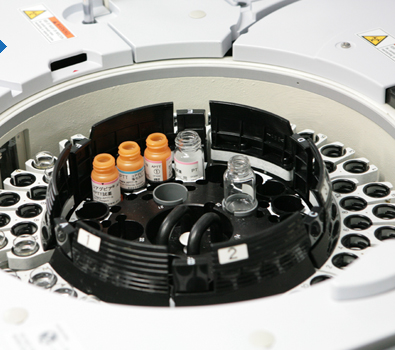BUSINESS
BUSINESSGeneral Toxicity Studies
Introduction
General toxicity studies are the most fundamental to the development of new drugs, health supplements, cosmetics, chemicals, and agricultural chemicals, and are necessary for registration.
These studies are designed to obtain basic toxicity information such as approximate lethal dose (ALD), no-observed-adverse-effect level (NOAEL), and the maximum tolerated dose (MTD), and the results can serve as a reference for other toxicity tests.
Both single-dose (acute) toxicity studies, and repeated (sub-acute/chronic) toxicity studies are available. In order to determine initial toxicity, dose range-finding (DRF) studies, dose escalation studies, as well as maximum tolerated dose (MTD) studies are also available.

Our Studies (Applicable to ICH, OECD, JMHW, KFDA, NIER, RDA)

Single-dose (Acute) Toxicity Study (Including Maximum Tolerated Dose Study)
The aim of the single-dose toxicity study is to determine the approximate lethal dose (ALD) by administering a single dose of a test substance on rodents (rats, mice) and non-rodents (dogs, primates). This study enables the evaluation of acute effects such as general symptoms when overdosed, weight, as well as long-term effects on organs.
The single-dose toxicity study provides basic data for other studies, such as the repeated-dose toxicity study.
Repeated-dose (Sub-acute/Chronic) Toxicity Study
This study evaluates general toxicity as a result of repeated administration for a period of time. The study, which is conducted using rodents (rats, mice) and non-rodents (dogs, primates) evaluates general symptoms, weight change, food and water consumption, and involves ophthalmological examinations, electrocardiograms, hematological and hematochemical examinations, and histopathological examinations. The aim of this study is to determine the dose-response relationship to the target organs and to determine the no-observed-effect level (NOEL) or no-observed-adverse-effect level (NOAEL).
Single-dose/Repeated-dose Toxicity Study
The single-dose/repeated-dose toxicity study is performed considering injection time in clinical trials. A single-dose study can be conducted by applying evaluated parameters and observation periods within the scope of a repeated-dose toxicity study.
Tumorigenicity Study
To evaluate the tumorigenicity of the test substance, immunocompromised, immunodeficient or humanized animals are used to avoid xenograft rejection between the test substance and test animals since the test substance is a human-derived cell. The tumorigenicity study is conducted over a period of 6 months, which is a time period sufficient to observe tumor formation following the administration of the test substance.
Detective study of residual cells
The objective of this study is to evaluate in vivo distribution, engraftment and proliferation in organs of cells for a period of time following the injection of the test substance. A quantitative PCR analysis is performed.
Other Available Studies
- 01_ Repeated-dose Study Using Infusion Pump
- 02_ Tissue or Internal Organ Transplantation Study
- 03_ Cell Therapy Study